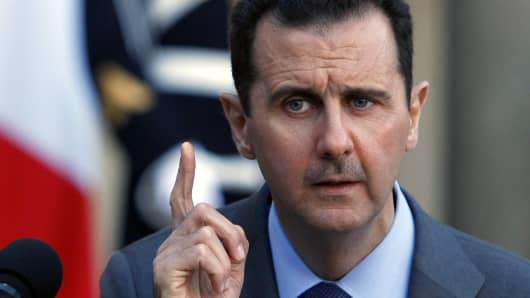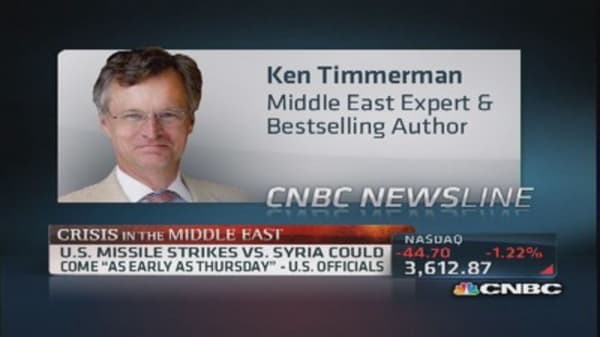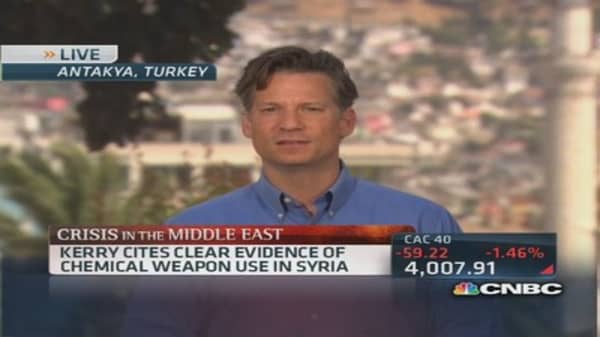The United States could hit Syria with three days of missile strikes, perhaps beginning Thursday, in an attack meant more to send a message to the Syrian regime than to cripple its military, senior U.S. officials told NBC News.
The options are not about regime change, the White House said.
The disclosure added to a growing drumbeat around the world for military action against Syria, believed to have used chemical weapons in recent days against scores of civilians and rebels who have been fighting the government for two years.
In three days of strikes, the Pentagon could assess the effectiveness of the first wave and target what was missed in further rounds, the senior officials said.
British Prime Minister David Cameron cautioned that no decision on military strikes had been made. The White House said President Barack Obama has a variety of options, not just an attack, Reuters reported.
But some analysts said Washington had few options other than force in order to preserve its credibility in light of statements by Obama drawing a line against Syrian use of chemical weapons in its civil war and more recently by Secretary of State John Kerry on Monday.
"Once you make those kinds of comments ... you risk losing your credibility if you don't then follow through on them," Jacob Shapiro, Middle East analyst for Stratfor, told CNBC's "Street Signs."
"I'm not going to tell you that it's an absolute sure thing, but I think there's a very high probability that there will be some kind of punitive, limited strike in Syria in the next few days."
News of a possible attack sent U.S. stock prices skidding—the Dow fell to a two-month low—while oil prices surged to a six-month high and Treasury prices rose. European stocks also suffered their biggest drop in two months.
Gold hit its highest level since May 15 and silver reached its highest level since April 26.
More from CNBC.com:
Dow plunges; Vix surges on Syria jitters
Oil spikes as markets fear imminent strike against Syria
Gold jumps on possible strike against Syria
Cramer: Agriculture the 'go-to' sector, despite Syria
Forget Syria, it's time to short gold: Trader
The U.S. officials' comments about the possible timing for military action came a day after another round of telephone diplomacy by Obama, who held discussions with Australian Prime Minister Kevin Rudd and French President Francois Hollande.





